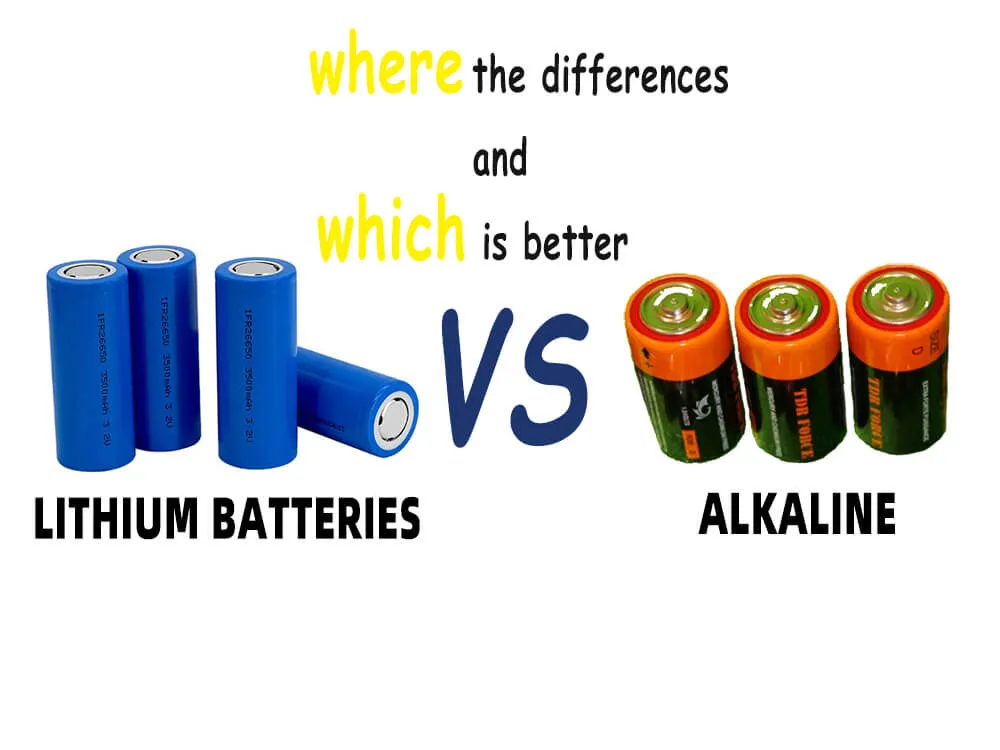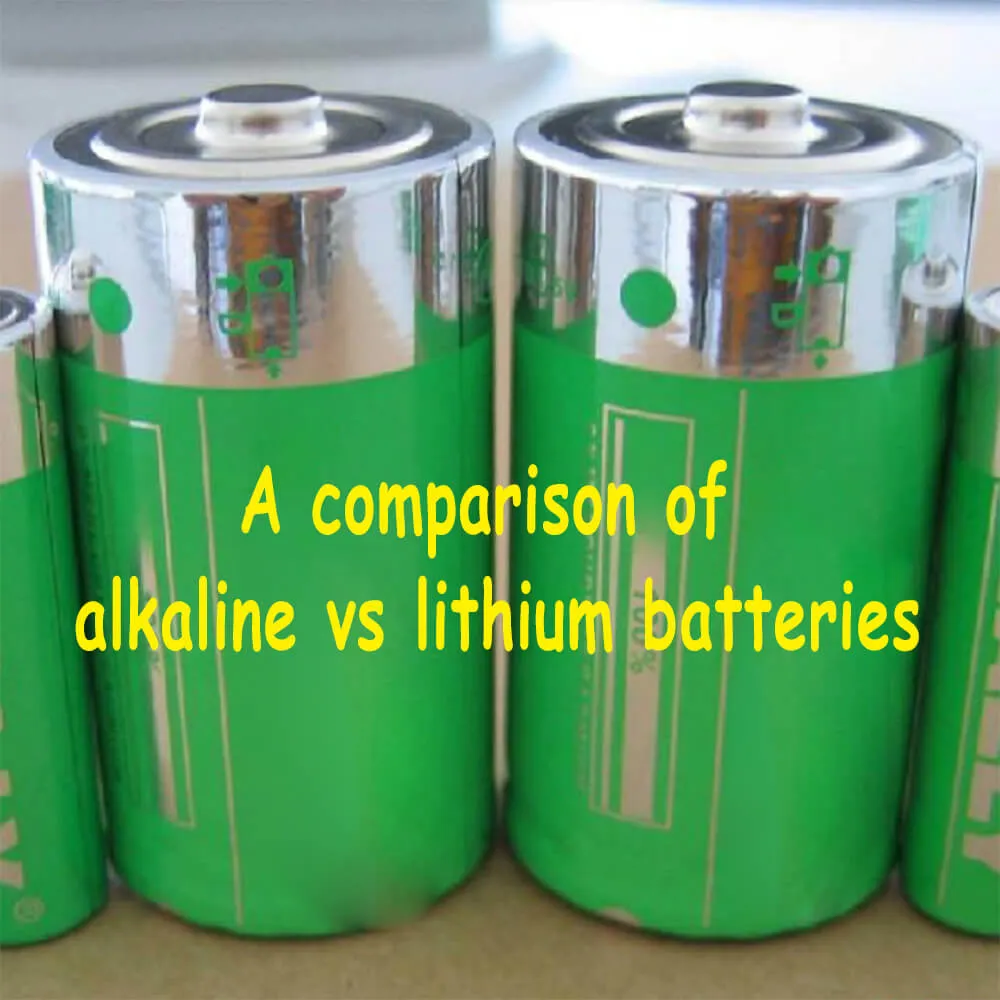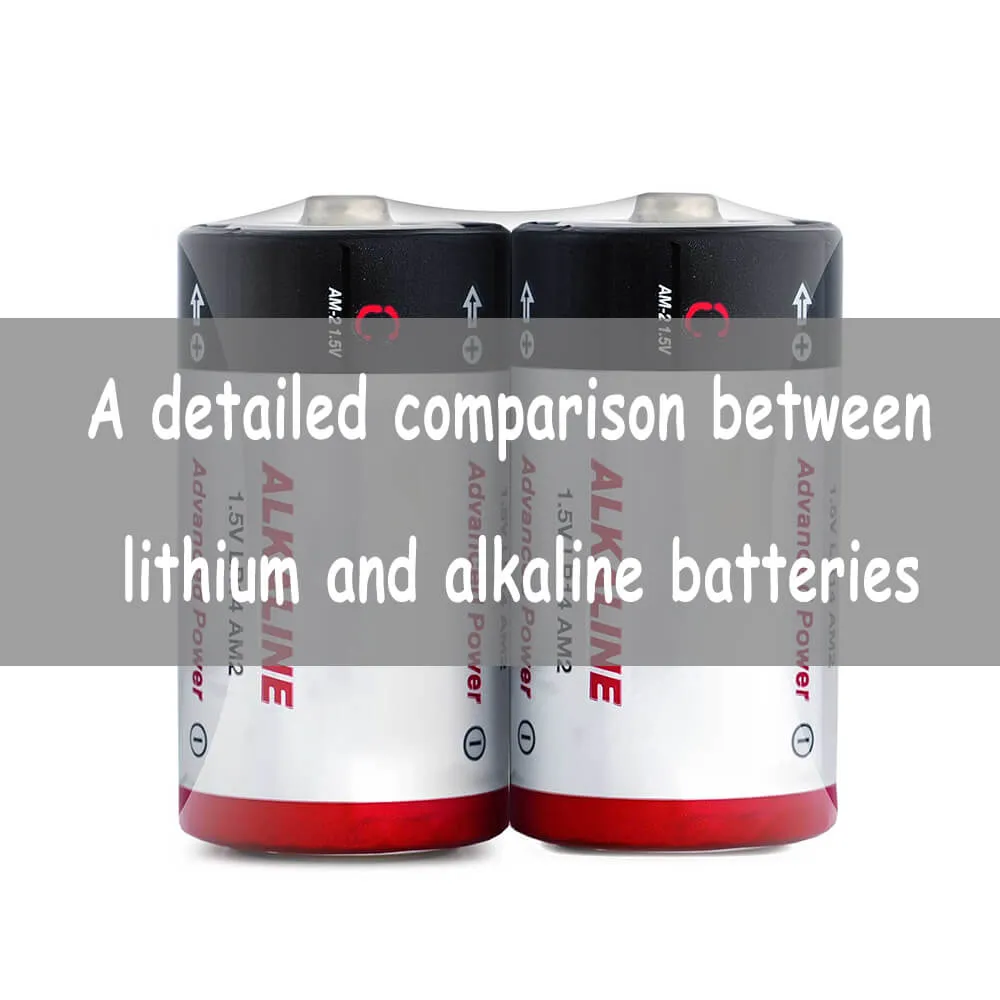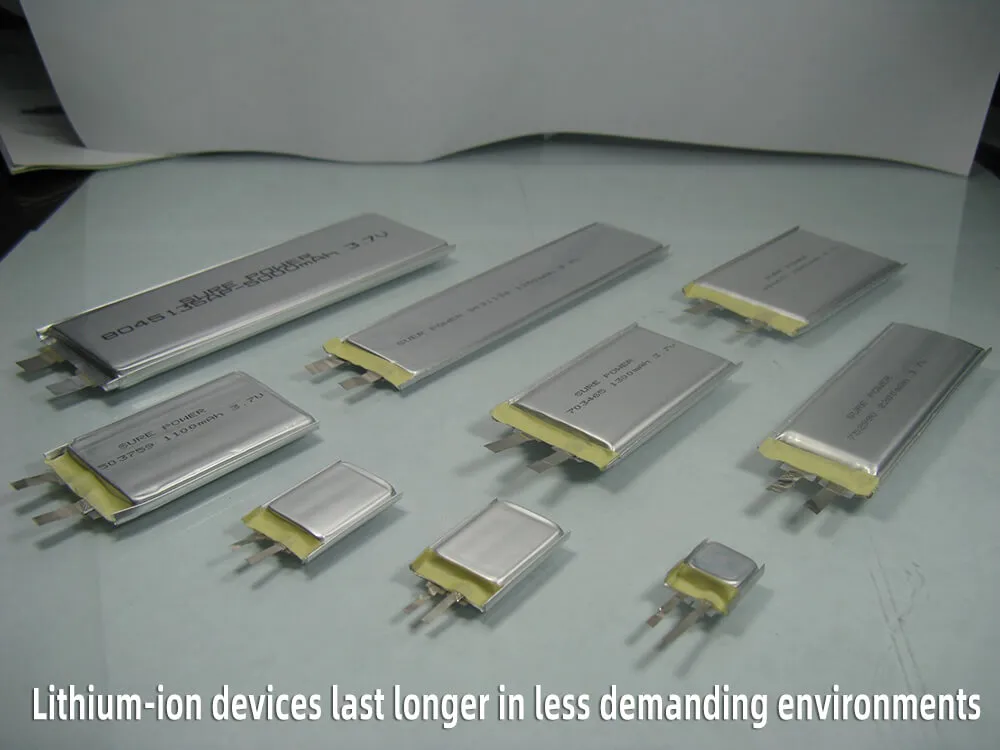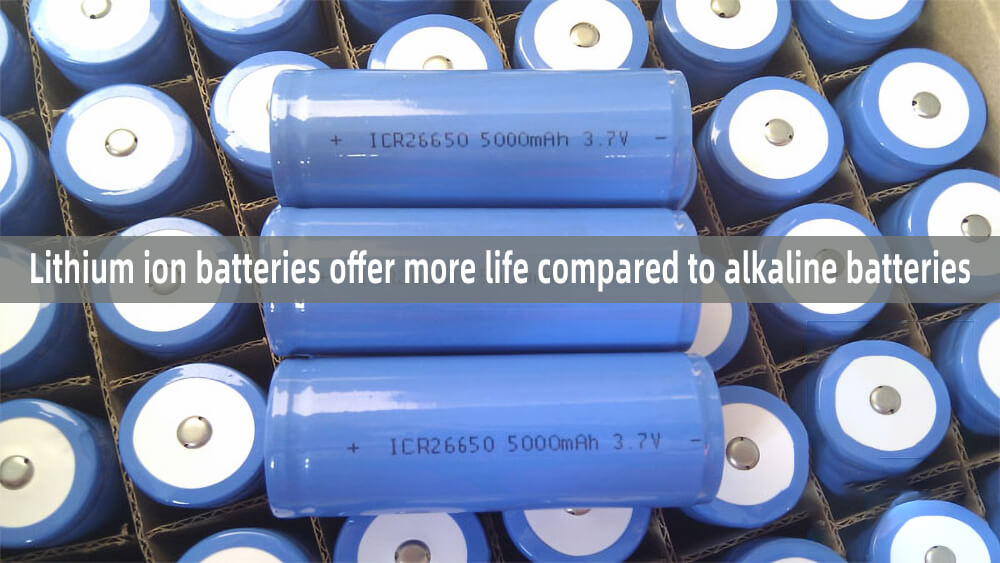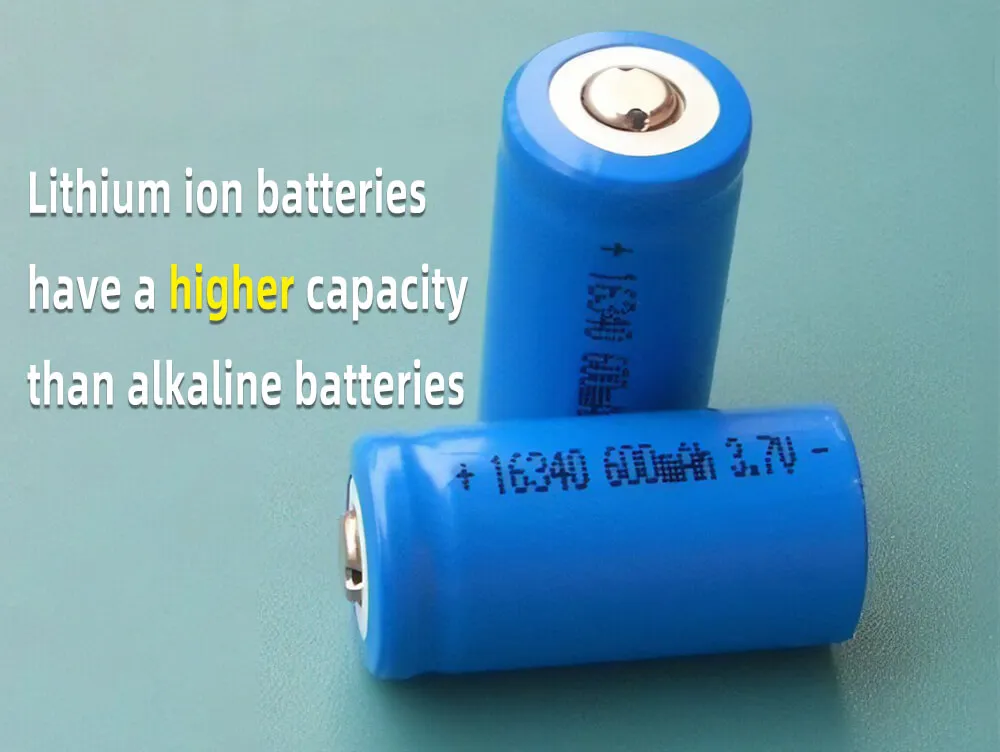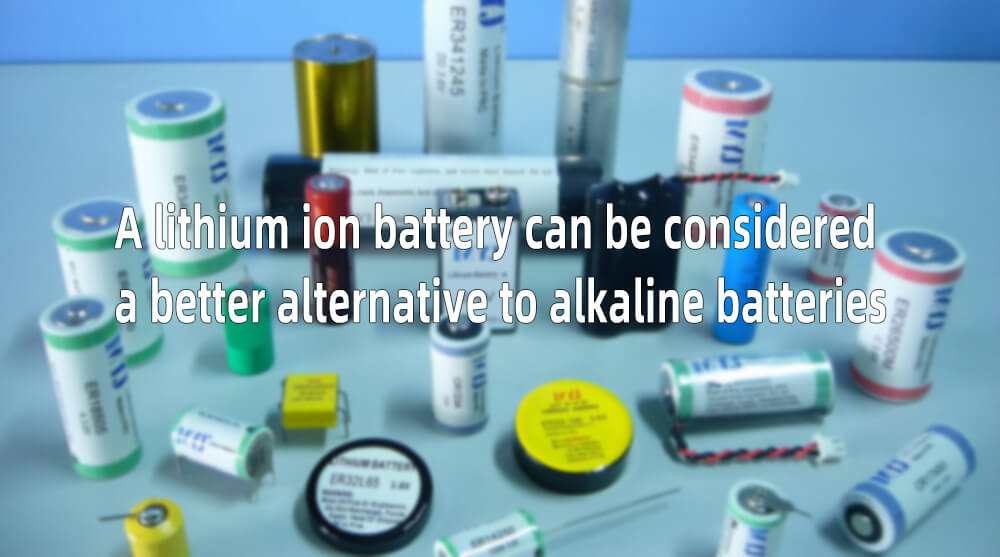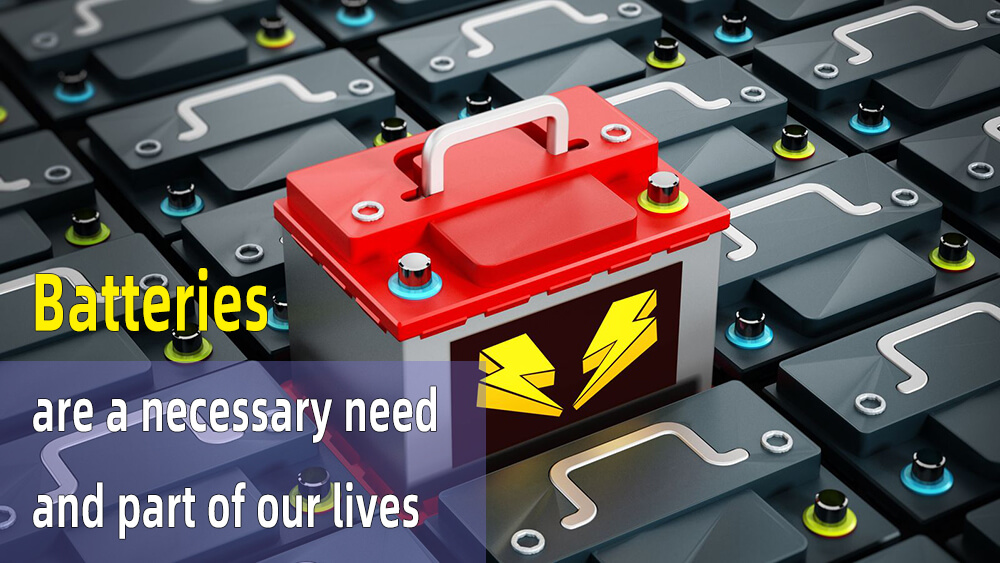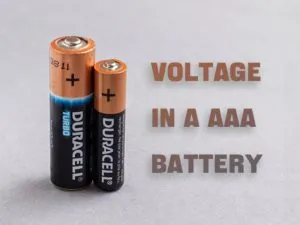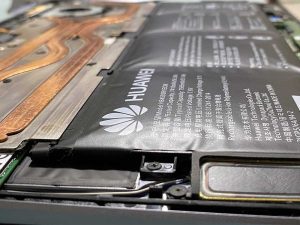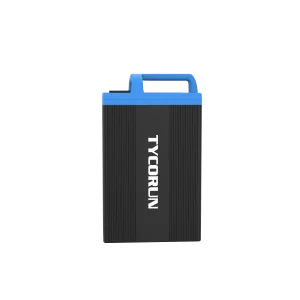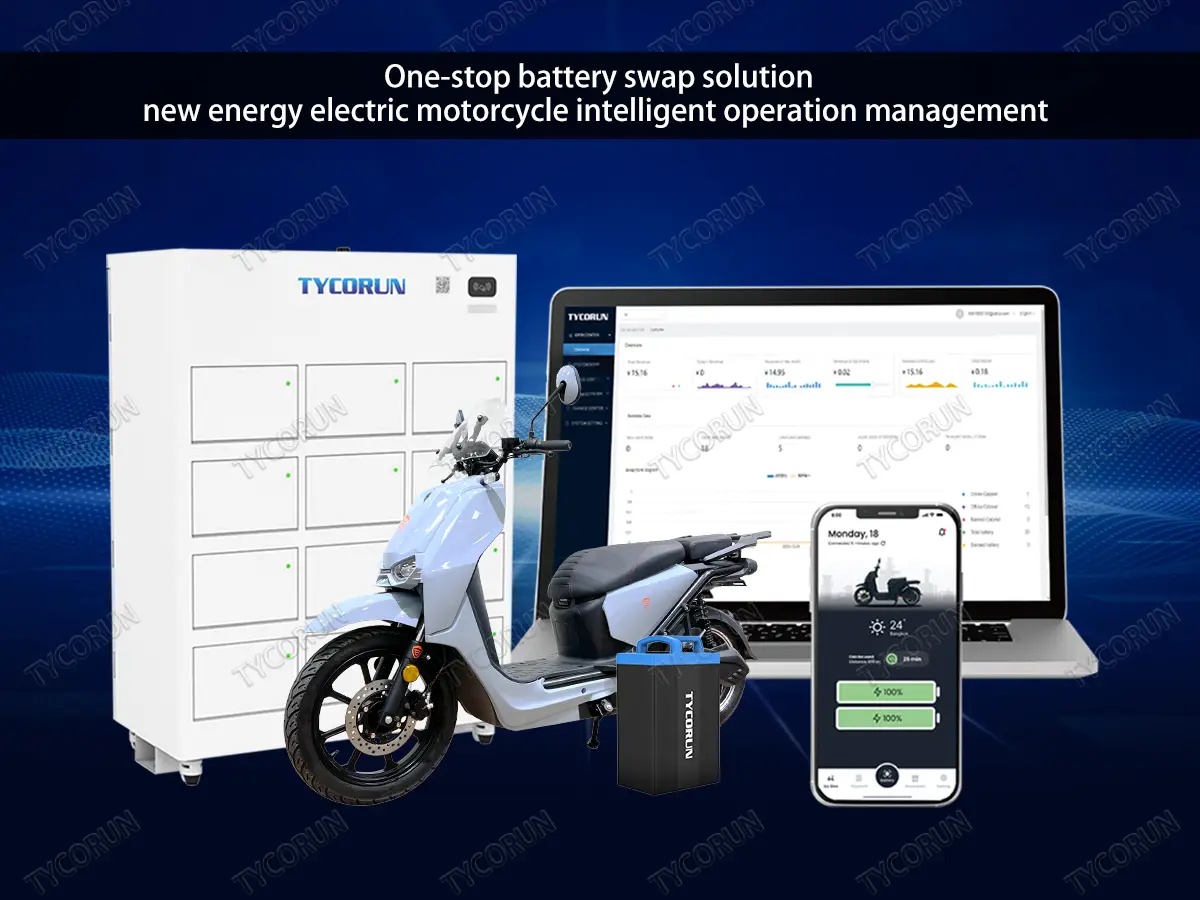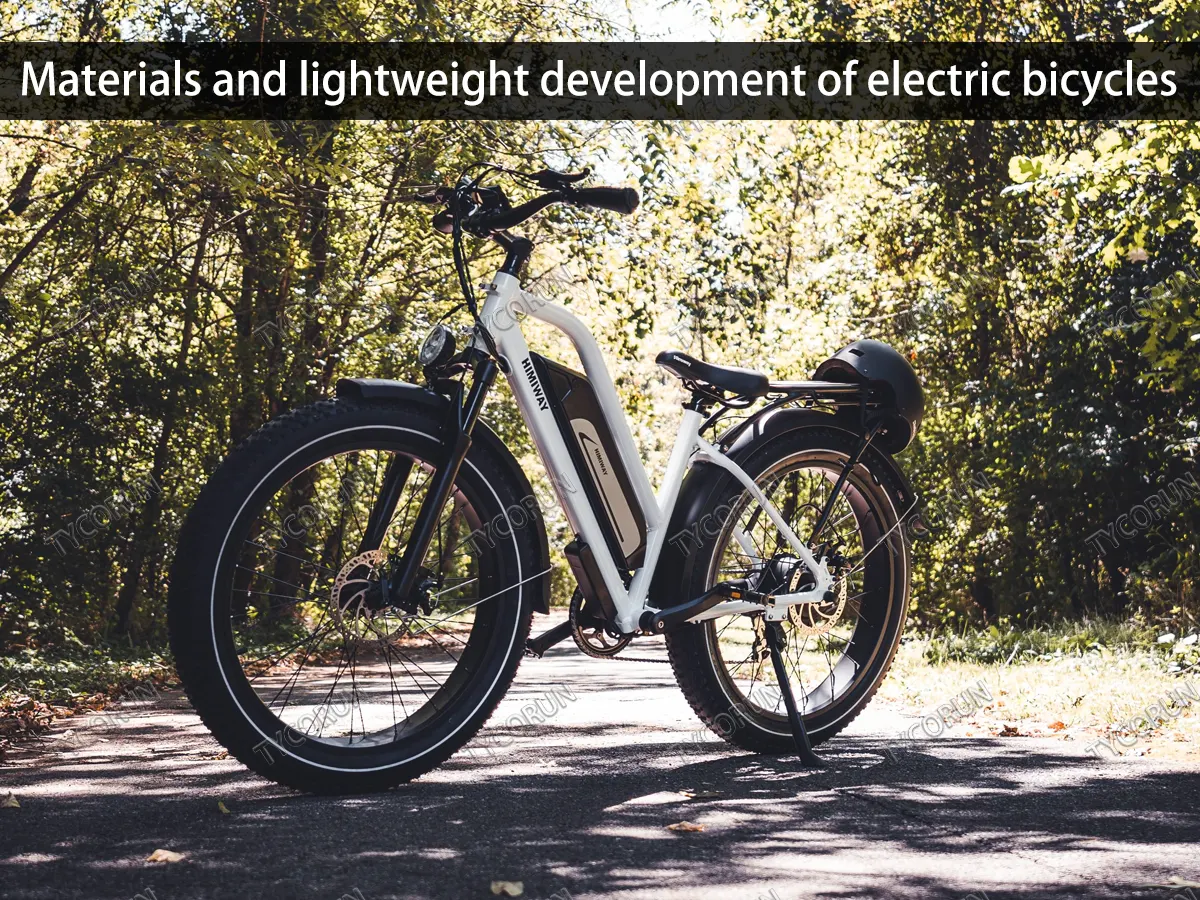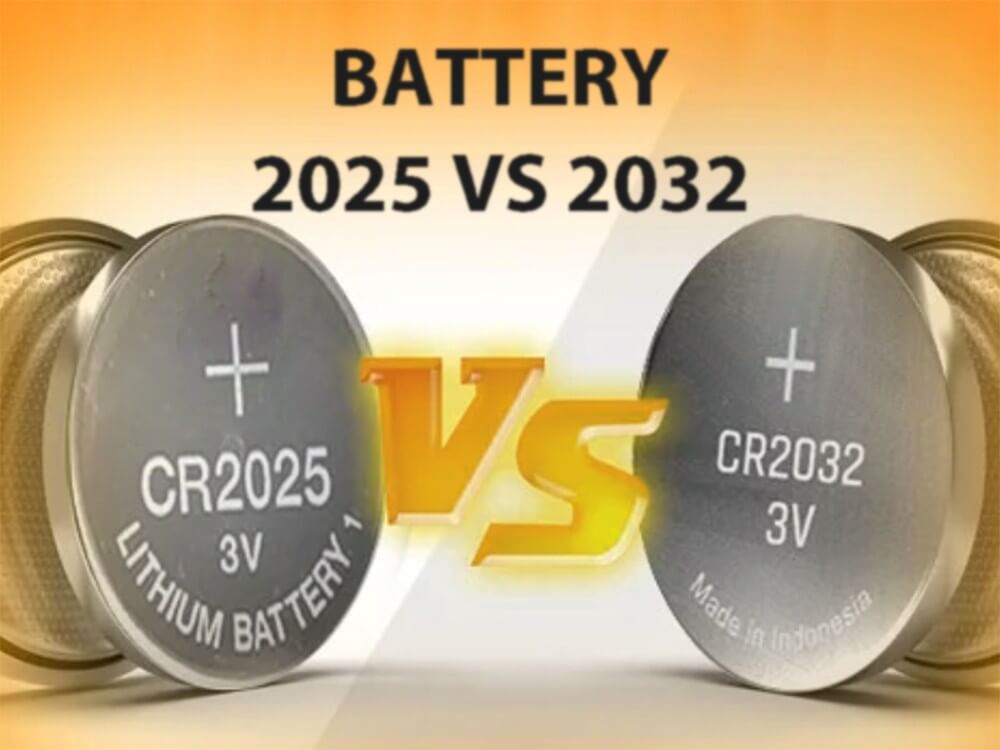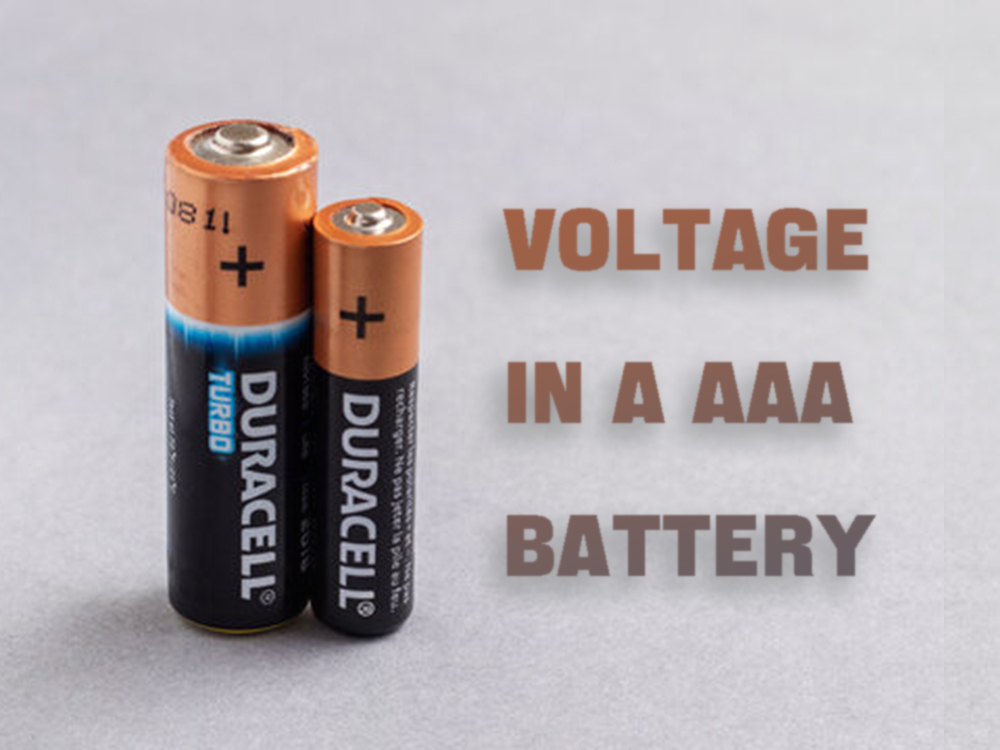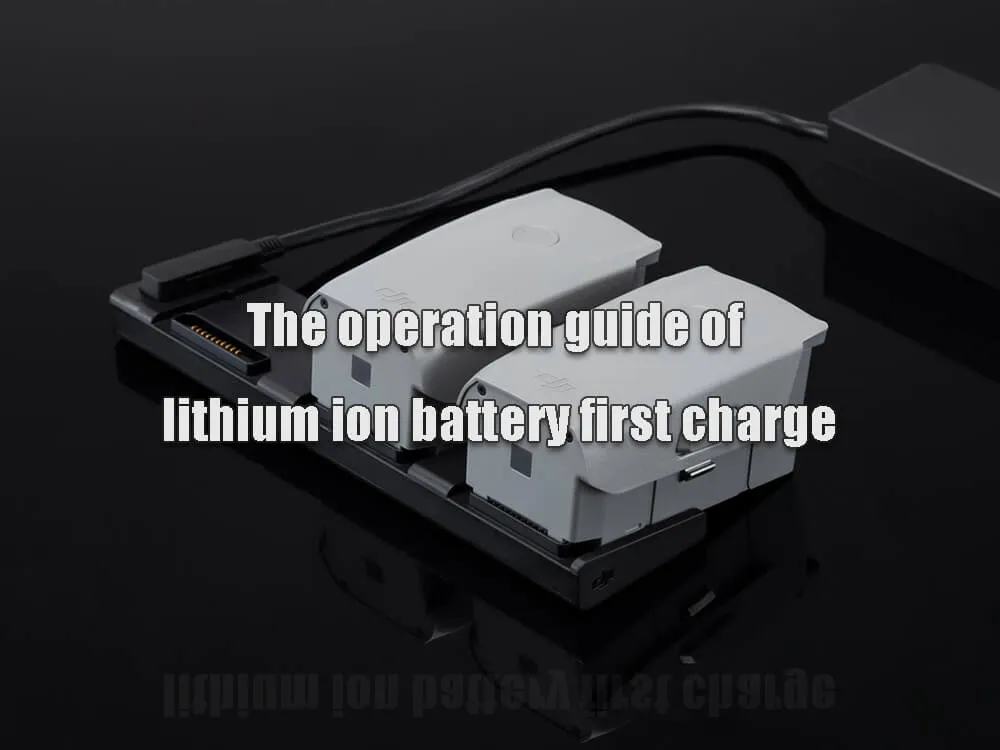Home » battery industry » Lithium vs alkaline batteries – where the differences and which is better
Lithium vs alkaline batteries - where the differences and which is better

A comparison of lithium vs alkaline batteries
The most common cylindrical batteries available in the markets are lithium vs alkaline batteries:
•Alkaline batteries
•Lithium batteries
They are further grouped into
•Single use batteries
•Rechargeable lithium batteries
These two types of batteries lithium vs alkaline batteries differ in voltage and the chemical compositions. However, each of these batteries has their own unique advantages and how they function to take into consideration.
A lithium battery contains four key parts; A cathode, anode, a non-aqueous electrolyte and a separator. Alkaline batteries on their part have different varieties as will be discussed later.
In this article, we will look at the differences between lithium vs alkaline batteries and how to choose a battery that best suits you.
A detailed comparison between lithium vs alkaline batteries
Power generation
Alkaline batteries are made of steel with a mix of graphite, zinc, paper and plastic. The cathode is made of magnesium oxide, its anode made of zinc and a potassium hydroxide based electrolyte. Today’s alkaline batteries include carbon in their cathode combination.
On the other hand, lithium batteries contain four key parts. A cathode, anode, a non-aqueous electrolyte and a separator.
- Cathode – lithium
- Anode-graphite
- Separator- Polyethylene and other plastics
- Electrolyte – contains lithium salts in an organic solvent.
Types
Both batteries come in different types dependent on their function.
Lithium batteries are mostly in two types:
- Lithium iron phosphate battery
- Ternary lithium battery
This battery technology is the most popular in the market for its high performance traits. As opposed to alkaline batteries, The same type of lithium battery are available in:
- 9 volts
- AAA
- AA
- Coin shaped cell batteries.
- 18650, 21700, 14500
Alkaline batteries are still used today, albeit a little less than some years ago. They dominated the market prior to the introduction of lithium batteries. These batteries are also available in AAA, AA and 9-volt battery sizes. The type of battery is categorized by specific chemistries within the battery.
Price of lithium vs alkaline batteries
Compared to lithium-ion batteries, alkaline batteries are cheaper. This is because of the inclusion of organic compounds in lithium batteries’ composition. Lithium ion batteries also possess features that are more suitable to newer technologies like electric vehicles and digital devices.
This has also increased the demand of these batteries making them pricier.
Lithium-ion devices last longer in less demanding environments. An example of this is they will last longer in toys as compared to alkaline batteries.
This then reduces the cost of replacement as would be incurred in alkaline batteries. In this instance it is safe to say that the lithium battery is more cost effective compared to its alkaline counterpart.
Voltage
When we come to the voltage of lithium vs alkaline batteries, an alkaline battery contains 1.5 nominal voltage per cell while a lithium battery operates at a voltage of the nominal voltage of lithium primary batteries is 1.5V and 3.0V.
Lithium ion batteries are suitable for higher functioning equipment’s as they have a voltage of about 3.6v/3.2v per cell. Lithium ion batteries can form 72v lithium ion battery pack or even higher voltage battery pack, This means a lithium battery will offer better performance compared to an alkaline battery.
Life span of lithium vs alkaline batteries
When comparing the lifespan of these two batteries lithium vs alkaline batteries, that of a lithium-ion battery quadruples that of an alkaline battery. Alkaline battery 300 cycles, lithium battery 4000 cyclesAn alkaline battery’s life span is relatively shorter because they lose at least 5% of life daily and degrades even when idle.
However, there are non-rechargeable types of alkaline batteries that can last longer than the traditional batteries due to their higher shelf life.
Operating temperature
Operating temperatureof lithium vs alkaline batteries, when exposed to cold temperatures, alkaline batteries function poorly. This is because low temperatures will slow the chemical reactions within the battery.
Alternatively, lithium ion batteries function the best in cold temperatures. This makes these batteries best suited for use outdoors But the operating temperature of the lithium battery is -20 to 60 degrees, exceeding this range will affect the performance.
Recharge
Recharge of lithium vs alkaline batteries,Alkaline batteries are not designed to be rechargeable. An attempt to recharge an alkaline battery can lead to an explosion.
Lithium batteries are available in both rechargeable and non-rechargeable models. Lithium ion batteries offer more life compared to alkaline batteries. For alkaline batteries, leakages and short circuits are a potential hazard to explosions and overheating during recharging.
About uses of lithium vs alkaline batteries, alkaline batteries are used mostly in low application devices like remote controls, toys and flashlights because of their low voltage output.
On the other hand, lithium batteries are used in high level equipment like medical devices, cameras. These lithium batteries are also preferred in new-age devices due to their light weight as well as density.
Alkaline batteries may appear bulky and there not suitable for some equipment. For example, mobile phones, especially smart phones nowadays use lithium ion batteries as opposed to alkaline batteries. Alkaline batteries in a series can be used generate the desired energy output.
The light nature of a lithium ion battery makes it suitable for use in electronic vehicles because its power to weight ratio means that a car can survive for longer periods of time on a one charge. Lithium is however not flown as they are a Potential risk to catching fire.
Resistance
Resistance of lithium vs alkaline batteries, alkaline batteries have a higher inner resistance as compared to lithium ion batteries. A high internal resistance within a battery reduces its power output because it decreases voltage.
This is why lithium batteries are more preferred for applications that require consistent energy levels for a longer period of time. Varying Inner resistance in these two types of batteries is also why you cannot mix both batteries as it will affect the battery’s performance.
Capacity
The capacity of a battery is the amount of energy it can store. Lithium ion batteries have a higher capacity than alkaline batteries. This way lithium batteries can deliver consistent high volumes of energy for a long time compared to alkaline batteries because they lose strength during use. A lithium battery has a slower self discharge as well with a capacity of a 1200mAH.
Disposal of lithium vs alkaline batteries
Non rechargeable alkaline batteries are not toxic to the environment because they do not contain mercury in their composition. Alkaline batteries contain ingredients that are recyclable. Dead alkaline batteries can be disposed with house hold waste.
Potassium hydroxide contained in the battery can cause irritation hence disposal should be done carefully. Lithium batteries on the other hand decay when exposed to high temperatures and are hazardous to the environment and are also susceptible to fires. Legal disposal of lithium battery requirements will vary for different states. Lithium batteries should be stored in designated areas.
Safety precautions
- When replacing batteries, it is vital to check compatibility with the help of the battery manufacturer’s guide.
- Avoid over discharges of the batteries at all cost whether they are in use or kept for storage.
- Do not charge disposable alkaline or primary lithium batteries.
- Keep batteries away from flammable materials.
- Use the right charging method
- Lithium ion batteries should be stored at room temperature.
- Lithium batteries do better with partial discharges than deep discharges because they do not have charge memory.
Which battery is better
When choosing a battery, take into consideration the performance and capacity of lithium vs alkaline batteries and how it serves the purpose you intended it for. Both of these battery have their peculiar features, advantages and disadvantages.
A lithium battery offers efficiency and longevity while alkaline batteries larger capacity than other dry batteries but lose their strength over time. A lithium ion battery can be considered a better alternative to alkaline batteries except that they go for a higher price.
Choosing the right battery
Size
Every gadget operates on a specific type and size of a battery. This information will be available on the manual. When replacing a replacement battery, check the previous battery operating on the device.
Mostly the battery size is indicated in alphabets for example, AA as you advance in size. This is different in button battery cells. These batteries indicate the chemical components and shape followed by the size.
Type
Depending on your intended purpose you are able to choose between buying a reusable or a single use battery. Both types have their pros and cons.
Advantages of single use batteries
- They are budget friendly
- They have a longer shelf life
- They are readily available
The major disadvantage to using single use batteries is lack of longevity.
Rechargeable batteries
These batteries are more expensive than single use batteries. However, the cost issue reduces over time considering the many times you can reuse these batteries. These batteries offer more long term value compared to one time use batteries.
Conclusion
Batteries are a necessary need and part of our lives. This is why the it becomes even harder when choosing lithium vs alkaline batteries. Both types of batteries vary in chemistries and features.
An ideal battery will offer a good balance on its pricing, energy output and longevity. Using batteries right and with care can boost life and performance to outlast its life span. The best battery is one that fits your need and serves the intended purpose as you would require it to.


